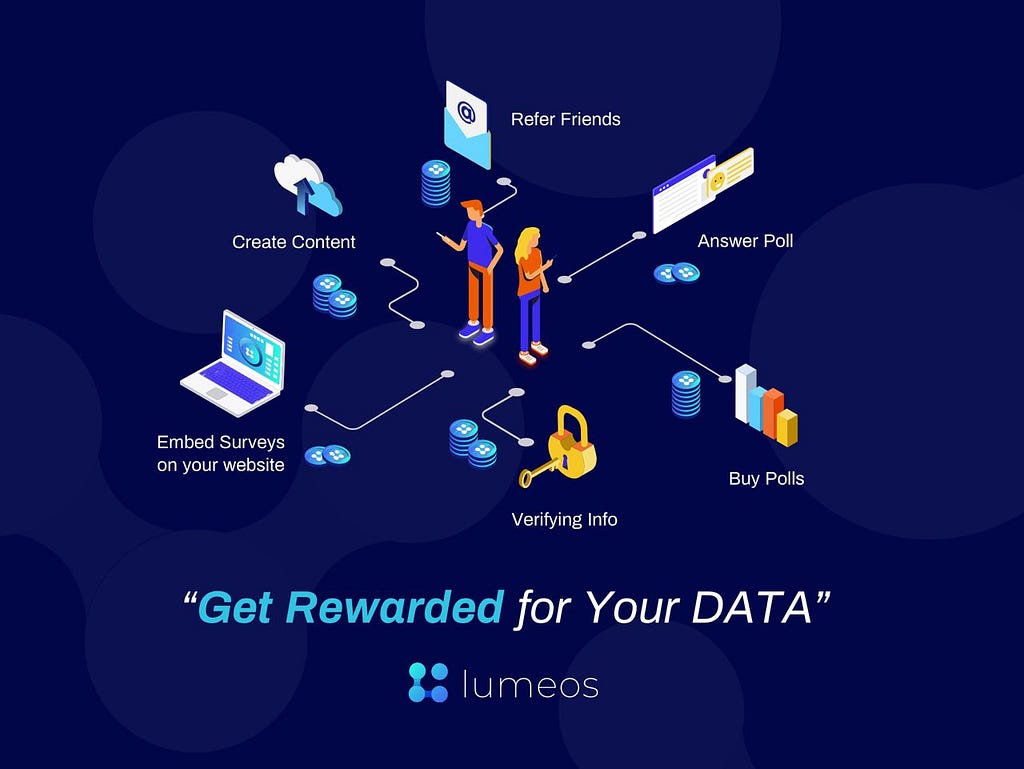Latest news about Bitcoin and all cryptocurrencies. Your daily crypto news habit.
 Your data is very valuable, that’s why you should have ownership and full control over it.
Your data is very valuable, that’s why you should have ownership and full control over it.
How much is your personal data worth? It’s hard to say. A 2013 article in the Financial Times pegged that number at $.007 for each distinct fact about yourself — age, gender, and geographic location to name a few. While that number might not sound like a lot, if you take into account the wide breadth of personal information you can reveal, you’re looking at some serious money.
But that $.007/per piece estimate is also from five years ago, which might as well be a century in the tech industry. Silicon Valley was a very, very different place in those years. It was a place where you could buy Bitcoins for $100, where the Giants were World Series champions. Today, I estimate that price of each piece of personal data to be much, much more. Though there’s no universally-accepted number, a quick calculation using Datum will yield a number closer to a dollar per piece. Cumulatively, the global data market in 2018 is estimated to be worth a quarter of a trillion dollars annually. In today’s world that means you can actually make a living selling mundane information about yourself.
Data is the new digital oil.
That is not an exaggeration. In a recent Economist cover article, data was likened to oil: a commodity set to define an entire century. That too is not an exaggeration. According to Statista, big data alone — this is excluding things like Facebook posts — is worth a staggering $42 billion per year. That number is expected to jump to $103 billion in the next nine years. If small data, those mundane Facebook posts, the miles you drive in your car, etc., follows this trend, we’re looking at a valuation of over $600 billion annually in the next decade. With 3 billion active daily internet users, assuming an equal distribution of data per users (which there is not), that would mean $200 annually. And given that America generates 2,657,700 gigabytes of internet data every minute (of the world’s daily total 2.5 quintillion bytes) Americans will be enjoying the majority of these benefits — thousands of dollars annually.
The crazy thing is, these numbers represent the average passive data monetization. If you quit your job and committed yourself to selling your data online full time, you wouldn’t just survive. You would live. What’s fair game? Facebook, Twitter, and Linkedin activity, blog posts, data directly shared to advertisers … pretty much anything you could think of that you do online. Except now instead of just using these services as you normally would, you’ll be benefitting on a major scale.
Lumeos a game changer in the world of online data sharing
That’s the aim of my company, Lumeos; your data should work for you. Why, you might ask, is it not doing that already? At the moment, your data is working for someone else. Actually, it’s working for a lot of other people. And big companies too. The perfect example of this is Facebook. When users sign up for a Facebook account they willingly divulge information in exchange for the right to use the platform. Facebook then — unbeknownst to these users — sells this data like hotcakes to any interested parties. Companies can host minutely targeted advertisements on Facebook in order to appeal to as wide or specific a demographic as they please, all with commonplace personal data.
This newly-created advertising market has grown very, very big. According to search marketing company Wordstream, each click from a Facebook ad costs $1.72. Google, another notorious data harvester, had an average cost-per-click price of $2.32. Your data is worth an enormous amount — billions when aggregated with other people’s data. Chances are you haven’t seen a dime of this money.
I want to change that with my company. Lumeos will empower people to take control of the data that belongs to them — and shouldn’t belong to anyone else without a legal, consensual transaction. Using our platform you can create and answer short polls, giving out as much or little information about yourself as you feel comfortable giving. Lumeos will be selling this willingly-divulged data to Data Management Providers, essentially large storage platforms for this information, which can thereafter be accessed by data analysts and consultants.
First of its kind on EOS, our blockchain-backed system — coupled with our team’s veteran technology experience — is poised to make Lumeos the premier decentralized data hubs in the world. For more information about getting the most out of your data, feel free to follow Lumeos on our meticulously-curated Instagram, or our Jason Silva-approved Twitter. You can also read our White Paper and join our Telegram group.
Getting the Most Out of Your Data was originally published in Hacker Noon on Medium, where people are continuing the conversation by highlighting and responding to this story.
Disclaimer
The views and opinions expressed in this article are solely those of the authors and do not reflect the views of Bitcoin Insider. Every investment and trading move involves risk - this is especially true for cryptocurrencies given their volatility. We strongly advise our readers to conduct their own research when making a decision.